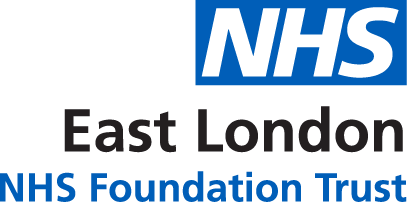Grief, Bereavement and Advance Planning

The last 18 months have sadly brought worry, grief, and trauma to many. For some, coronavirus meant loved ones deteriorated rapidly without much warning and with no time to prepare. The pandemic has very much brought to the fore the importance of advance planning about end of life wishes, saying we love and value people, and of having sensitive conversations in good times.
Dying Matters Awareness Week in May focused on the importance of making plans for what you want to happen and finding out what loved ones want in terms of where they die, what is important to them in the final stages, organ donation, funerals, wills, care of children/pets/keepsakes. In this short recording, Director of Nursing for Integrated Care, Ruth Bradley , explains why we need to talk about this.
Not Morbid - Time to Plan
Many people avoid such conversations as they are difficult and might bring sadness but there can be comfort in setting out what they want and how they want it; or in tying up loose ends and testing assumptions about who will do what. It can bring comfort and purpose amidst a time of difficulty.
Some cultures are more open about the end of life with a clear defined process for what is to happen. Tower Hamlets Administrator Syed Ali sadly lost his father in May 2020. He said:
“My dad once said to me if anything happens and if he dies, he would like me to lead the funeral prayer. I knew this was a huge task and responsibility. I felt privileged to lead the prayers for my dad, fulfilling his last wishes.”
Brave Conversations
In the last year, many have suddenly had to deal with arrangements for a loved one who has died without knowing what their wishes were.
Judith Dimmock, Palliative Specialist MacMillan Nurse Bedfordshire Community Health Services, says she has become passionate about what is a ‘good death’ through personal experience in her family and working life. Not talking about people’s wishes is a missed opportunity. She says:
“As palliative care nurses, we need to be able to help individuals to plan future care, discuss wants and wishes about that care, involving family and loved ones in those discussions, so that people are able to die with dignity in a place of their choosing, surrounded by those who love them.”
Unfortunately, the Coronavirus pandemic has meant that the usual contact we would have with loved ones at the end of their lives has not been able to happen due to travel restrictions or visiting restrictions. Our usual response is to go to a loved one if we can - so many are dealing with the loss of someone they couldn’t be with which is especially distressing. Tower Hamlets District Nurse Karen Griffiths sadly lost her brother in America in January 2021. She said:
“It was difficult getting accurate information about his condition. The time difference was another factor. All we could do is watch him on a WhatsApp video call. So I hold on to my last memory of him in person - back home in Jamaica. I am glad that Jamaica was the last place we both met one last time.”
Tracy Connellan, Ward Manager for Sally Sherman Ward at East Ham Care Centre in Newham, and her team were highly aware of the special role they had to play during the pandemic as patients in their unit neared the end of their lives. The ward staff were often the last physical contact they had. She said:
“Losing a patient was a very rare event on our ward before the first wave of COVID. Patients stayed for a few months before discharge and the relationships we had with them and their families were crucial. But all that changed in March 2020 when, with colleagues on Fothergill Ward next door, we found ourselves looking after vulnerable patients with multiple health problems in the final stages of their life. It has been a privilege to support people at the end of their life journey.”
Dr Lisa Dvorjetz, Macmillan Highly Specialist Counselling Psychologist in Tower Hamlets, has suggestions for how to support someone who is bereaved. She says:
“One of the most common things we hear colleagues, family members or friends say following a death is that they don’t know what to say to someone for fear of saying the wrong thing. The truth is that there is no right thing to say as it very much depends on the person and the situation. Just being there and listening is the best thing to do. Asking specific questions or paraphrasing what someone has just said is a way to show that you were listening and provide them the space to say what they want to say. Just having another person understand reduces anxiety levels and ultimately them helps them to cope.”

Claire Porter, Lead Nurse for Palliative Care in Bedfordshire, reminds us not to underestimate the impact on ourselves when supporting people who are bereaved. She says:
“Following the death of a patient, I found it difficult to seek support at first as I felt this was something my colleagues deal with every day and I shouldn’t feel upset. Actually, when I discussed this with colleagues, it was clear that I was not alone and that most of my colleagues had experienced similar situations where the death of a patient had affected them. I honestly believe it is key to be kind to ourselves, (as health professionals, relatives and friends) and take time to reflect and gain support after a difficult day, even when we think that it is something we ‘should’ be able to manage.”
Emma Robinson, Community Nursing Lead in Tower Hamlets says:
“Feeling regretful is often part of grief. My personal experience has made me realise just how vital communication and talking about death and dying is. I feel so privileged that my role now allows me to feel that I can make a difference in supporting people who are nearing the end of their lives, their families and those who are important to them.”
Supporting People Coping With Bereavement
The below resources can help people who have been bereaved and advise on ways friends and family can support someone who is grieving the loss of someone.
- Marie Curie - https://www.mariecurie.org.uk/
- NHS Confidential Bereavement Support (operated by Hospice UK). Call 0300 303 4434
- Sudden - https://sudden.org/covid-19-bereavement/
- National Bereavement Partnership Org- https://www.nationalbereavementpartnership.org/
- Samaritans Call 116 123 free - https://www.samaritans.org/
- Good Grief Trust - https://www.thegoodgrieftrust.org/
- Cruse - https://www.cruse.org.uk/
- At a Loss - https://www.ataloss.org/
